In short: I have a thread which is finished running, but not garbage collected.
In long: See following example code:
public void saveSomething() {
Thread thread = new Thread(new Runnable() {
@Override
public void run() {
// heavy memory access (~400 MB), finishes after ~10sec
}
});
thread.start();
}
Okay, so this thread gets started and finished after some time. During this time a lot memory is used, which is okay. But my problem is:
After the thread finished, the memory is not set free
And I don't know how I can ensure that. Finished threads, which are not used anymore, should get garbage collected as far as I'm informed; but this doesn't seem to happen here :(
See this screenshot from jvisualVM:

1: I trigger the thread start by calling saveSomething()
2: Thread was finished long ago (I saw it by debugging), and I pressed "Perform GC" in jvisualvm
As you can see, after I force the GC, everything is working like I want. But this has to happen automatically. How can I do that, what am I doing wrong?
If you need more infos, please ask. Note: It seems that after a day (hopefully shorter) the memory is back to normal, maybe the GC is just "slow" or rather not very frequently timed?